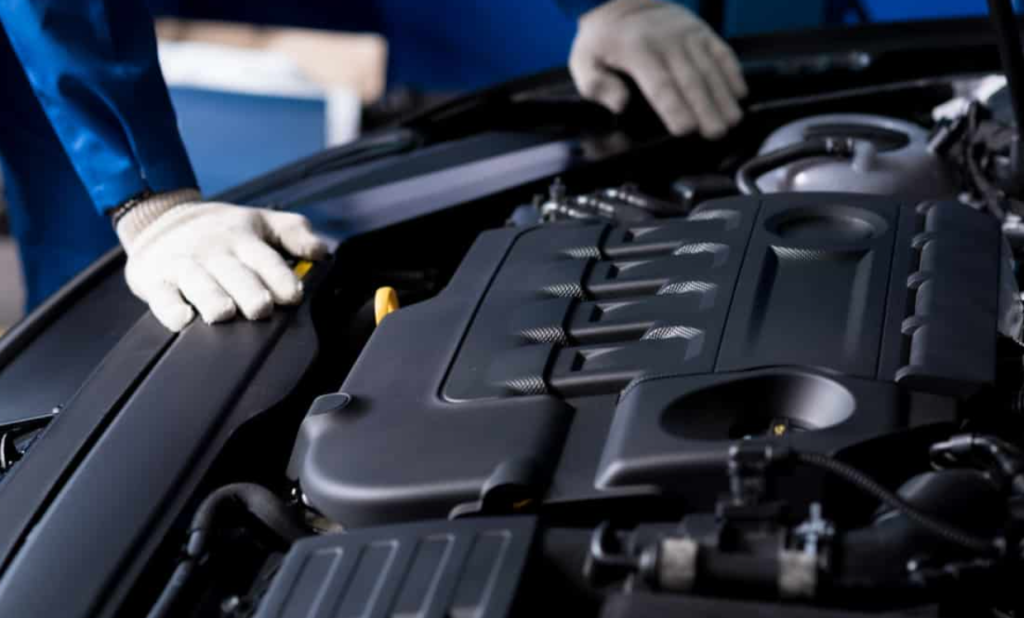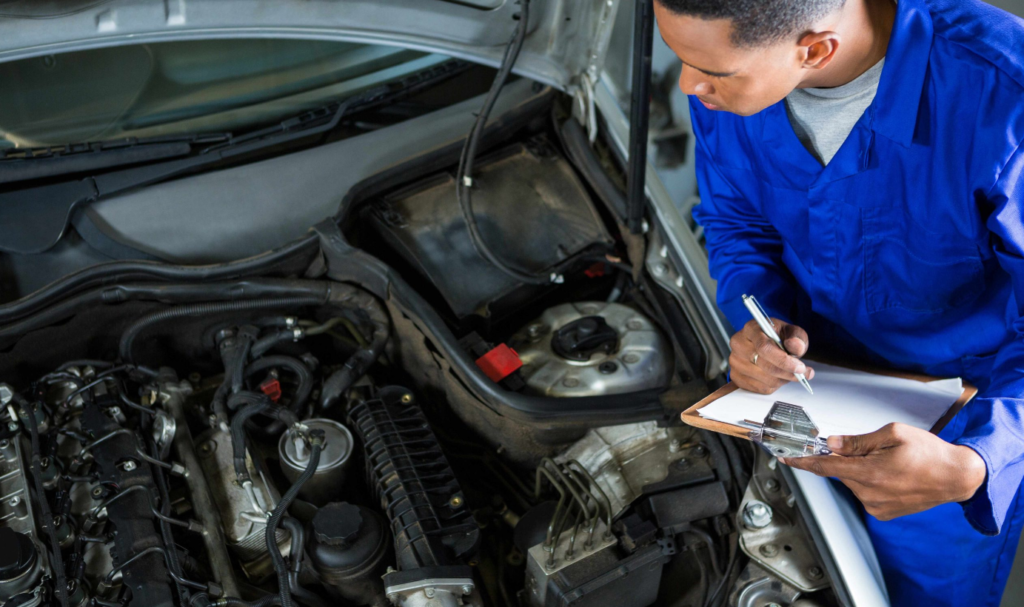A car is a complex machine, and noises are an inevitable part of its functioning. However, not all sounds are benign, and some might be your vehicle’s distress call for attention. Among these, one of the alarming noises is the engine noise that warrants immediate attention. By understanding the common noisy engine causes, we can help prevent damage and maintain the longevity of our vehicles.

Understanding Engine Noises
Just as a doctor identifies an ailment by a patient’s symptoms, engine noises can indicate what might be going awry under your vehicle’s hood. The occasional humming and buzzing are typical and nothing to worry about. However, unusual noises such as knocking, hissing, popping, or grinding can signal serious issues. Recognizing these abnormal sounds is the first step towards addressing noisy engine causes.
Common Causes of Noisy Engines
Understanding the root cause of the noise can help you address the problem more effectively. Some noisy engine causes include:
- Worn-out or Damaged Engine Belts: These belts control many engine functions, and their wear and tear can lead to unpleasant noises.
- Issues with the Exhaust System: Problems like a leaking exhaust pipe can cause your engine to become noticeably louder.
- Engine Knocking Due to Poor Fuel Quality or Engine Timing: The knocking noise often results from combustion occurring at the wrong time due to poor fuel quality or timing issues.
- Problems with Engine Bearings: These are crucial for minimizing friction in the engine. Damaged bearings can result in a loud grinding noise.
- Malfunctioning of Engine Accessories: The alternator, water pump, and other accessories can cause noise if they start to fail.
Diagnosing Noisy Engine Causes
While some noisy engine causes can be identified through simple observation, others require more thorough inspection. Pay attention to when the noise occurs, its characteristics, and any accompanying symptoms. Some noises might indicate the need for immediate professional help.
How to Resolve Noisy Engine Causes
Addressing noisy engine causes depends on the exact cause of the noise. Some solutions include:
- Solutions for Worn-out or Damaged Engine Belts: These can include tightening or replacing the belts.
- Repairing or Replacing Parts of the Exhaust System: Fixing leaks or replacing worn-out parts can eliminate noise.
- Addressing Engine Knocking Issues: This might involve changing the fuel type or adjusting the engine timing.
- Fixing or Replacing Faulty Engine Bearings: This requires a professional mechanic, as it involves disassembling and reassembling the engine.
- Repairing or Replacing Malfunctioning Engine Accessories: Depending on the faulty accessory, this can involve repair or replacement.
The Role of a Professional in Resolving Noisy Engine Causes
While basic knowledge and maintenance can go a long way, professional help is invaluable when it comes to diagnosing and treating noisy engine causes. Professional mechanics have the tools and expertise to accurately diagnose and rectify problems, potentially saving you time, money, and future headaches.

Preventive Measures to Minimize Engine Noise
To keep your car’s engine running smoothly and quietly, regular maintenance is key. Regular oil changes, using good-quality fuel, timely replacement of worn-out parts, and adopting good driving habits can help prevent many noisy engine causes.
Conclusion
While engine noise can be unsettling, understanding the potential causes can empower you to take action and prevent serious damage. Whether it’s routine maintenance or consulting a professional, timely action is key when it comes to handling noisy engine causes.
Frequently Asked Questions (FAQs)
1. What are the most common noisy engine causes?
The most common causes include worn-out engine belts, issues with the exhaust system, engine knocking due to poor fuel or engine timing, problems with engine bearings, and malfunctioning engine accessories such as the alternator and water pump.
2. Can I diagnose noisy engine causes myself?
Yes, basic troubleshooting at home can identify some issues, such as checking for visible signs of wear and tear or leaks. However, some problems may require the skills and tools of a professional mechanic.
3. How can I resolve noisy engine causes?
The solution depends on the cause. It can range from replacing worn-out parts, addressing issues with the exhaust system, to fixing engine knocking problems. Some tasks can be done by savvy vehicle owners, while others should be handled by professionals.
4. What is the role of a professional in resolving noisy engine causes?
Professional mechanics have the knowledge, tools, and experience to accurately diagnose and rectify issues causing engine noise. They can save you time, money, and ensure the job is done correctly.
5. Can regular maintenance help minimize engine noise?
Absolutely! Regular vehicle maintenance, such as oil changes and timely replacement of worn-out parts, can prevent many common noisy engine causes. Additionally, good driving habits also help reduce wear and tear on the engine, thereby reducing noise.
6. Can ignoring engine noise lead to more serious problems?
Yes, ignoring engine noise can potentially lead to more serious, costly repairs in the future. It’s always recommended to address any abnormal engine noises as soon as possible to prevent further damage.